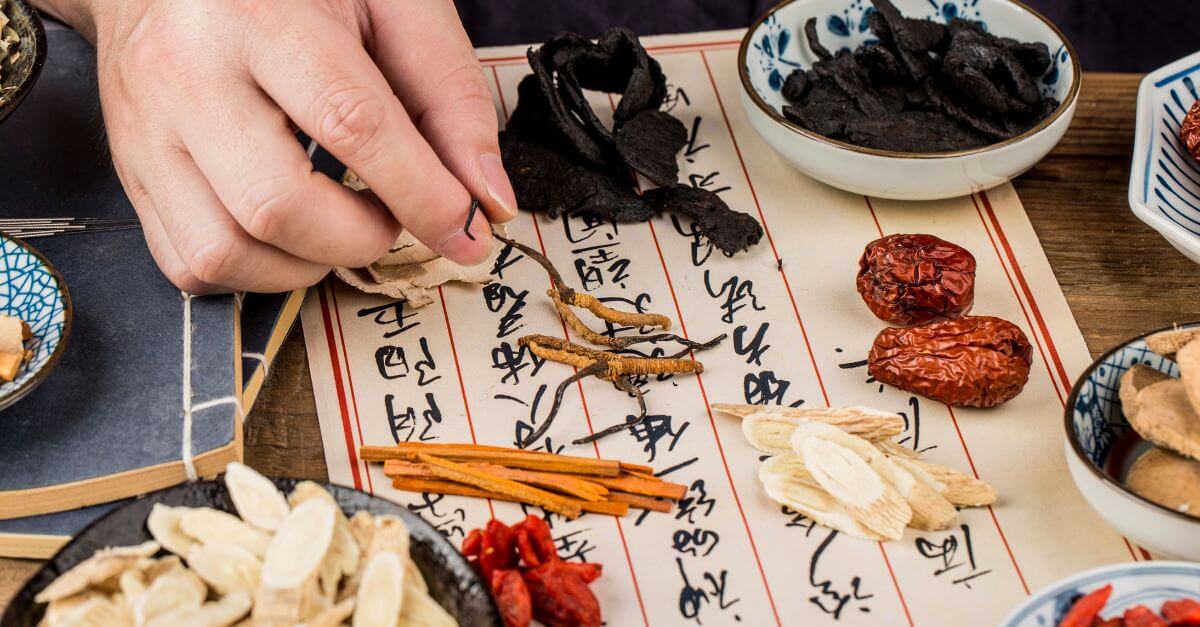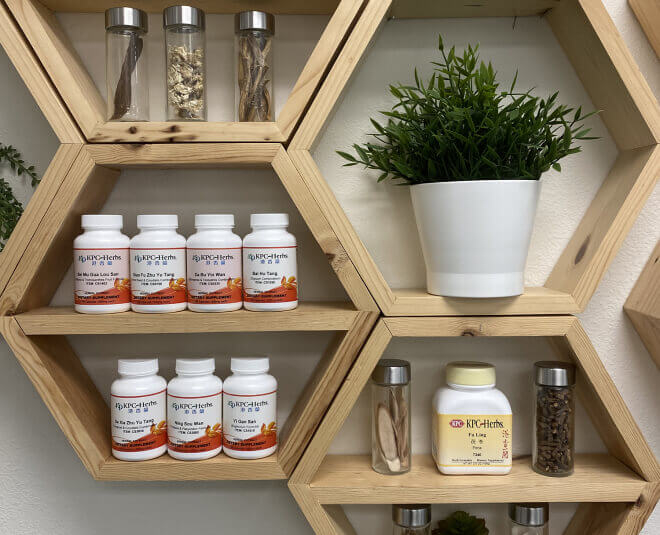Chronic inflammation and microbial imbalances are underlying factors in many modern diseases. Traditional Chinese Medicine (TCM) has long recognized the importance of addressing these underlying imbalances, and one herb that has been used for centuries to achieve this goal is Huang Lian.
Also known as Rhizoma coptidis and the “Golden Thread,” Huang Lian is an incredibly versatile herb that possesses anti-inflammatory, antimicrobial, and antioxidant properties. It has many traditional uses in TCM and has functioned as a common treatment for centuries.
In this article, we will explore traditional uses of this popular herb and modern research that may lead to its future use alongside conventional medicine.
Traditional Uses
Huang Lian has been used for centuries for various ailments, both as a single herb and in herbal formulas. It’s a “cold” herb that can be used to clear heat and dry dampness and is considered one of the coldest and most drying herbs in TCM. Let’s break down some of the most common uses of this medicinal herb.
Digestive Issues
Because of the herb’s “cold” energy, it is used to treat various digestive issues by clearing heat and toxins from the digestive system, reducing inflammation and promoting healing. It’s commonly used to treat both serious digestive problems, such as diarrhea, dysentery, and gastritis, and minor digestive issues, such as abdominal pain or bloating.
Fever and Inflammation
Huang Lian has the ability to clear heat and toxins from the body, and is a popular treatment for colds, flu, and other respiratory infections by reducing fevers and inflammation. Its anti-inflammatory properties may also help to reduce the severity of symptoms associated with seasonal illnesses, such as coughing, sore throat, and body aches. It may also be beneficial for more serious inflammatory conditions such as arthritis.
Skin Conditions
In TCM, Huang Lian is often used topically to treat various skin conditions, including acne and dermatitis, as its “cold” nature helps reduce inflammation. Its antimicrobial properties may also help eliminate pathogens contributing to skin infections and help reduce itching and swelling.
Hemostasis
Traditionally, Huang Lian has been used to stop bleeding. When the bleeding is caused by the chaotic movement of heat in the blood, the cooling herb works as a treatment. Types of bleeding commonly treated by this herb include nosebleeds and blood in the stool.
Modern Research
While people who follow and practice TCM have taken advantage of all of the benefits of Huang Lian for generations, modern doctors and scientists are learning how this powerful herb can be used alongside modern conventional medicine.There have been many studies analyzing its properties and capabilities, and there have been promising results that indicate its true potential. Here’s a breakdown of some of the properties of Huang Lian that have been studied and tested.
Cardiovascular Health
Huang Lian has been found to have a positive effect on cardiovascular health. Studies show that it may help to reduce blood pressure and cholesterol levels. It may also help to improve lipid profiles by reducing the production of low-density lipoprotein (LDL) cholesterol and increasing the production of high-density lipoprotein (HDL) cholesterol. This makes the herb a potential treatment for various cardiovascular conditions.
Anticancer Properties
Some studies have suggested that Huang Lian may have anticancer properties. The herb’s bioactive compounds have been shown to inhibit the growth of cancer cells. Additionally, it may enhance the effectiveness of conventional cancer treatments by increasing the sensitivity of cancer cells to these treatments. Though initial findings have shown promising results, further research is needed to understand Huang Lian’s anticancer properties fully and determine its potential as a cancer treatment.
Neuroprotective Effects
Research indicates that Huang Lian may also have neuroprotective effects. Some studies suggest that it may help to protect against neurodegenerative diseases such as Alzheimer’s and dementia. This herb may help to reduce oxidative stress and inflammation in the brain, which can contribute to the development of neurodegenerative diseases. While it still needs to be researched more fully, it has the potential to function as a treatment (and potentially even a cure) for neurodegenerative conditions.
Antimicrobial and Antiviral Properties
Huang Lian may possess potent antimicrobial and antiviral properties, making it effective against a wide range of microorganisms. Studies have demonstrated that the herb’s bioactive compounds, such as berberine, coptisine, and palmatine, can slow the growth of bacteria, viruses, and fungi. This makes it a viable treatment for various infections. The herb’s antimicrobial properties may also help prevent the formation of biofilms, which can contribute to the development of antibiotic-resistant bacteria.
Huang Lian: A Time-Tested Herb for Modern Health
As modern healthcare continues to evolve, it’s important to consider the therapeutic potential of traditional herbs like Huang Lian. By combining ancient knowledge with modern scientific inquiry, medical professionals and TCM practitioners can uncover new and innovative ways to promote health, prevent disease, and improve the human condition.
At KPC Herbs, we aim to provide all of our clients and customers with the finest herbs available. As a family-owned company that’s been passing down TCM knowledge for generations, we understand the importance of quality when it comes to herbal medicine. Please see our catalog to find the TCM herbal remedies you need.
*Please note: These statements have not been evaluated by the FDA. This article is not intended to suggest specific treatments for patients or that any supplements mentioned prevent or cure diseases or problems. Before taking any herbs, all patients should discuss their options with a licensed practitioner, including any other medications the patient is currently taking, as there may be contraindications between pharmaceuticals and herbs.

